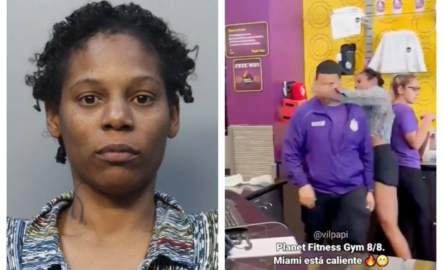Mark Clark, who served as a defense captain for the Illinois Black Panther Party, was just 22 years old when he and Fred Hampton, deputy chair of the Illinois Black Panther Party, were assassinated in a raid coordinated by the Cook County State’s Attorney’s Office, Chicago police, and the FBI.
Clark and 21-year-old Hampton were gunned down by 14 police officers as they lie sleeping in Hampton’s apartment in Chicago, Illinois, in the early morning hours of December 4, 1969. About a hundred bullets were fired in what police described as a gun battle with members of the Black Panther Party.
But ballistics experts later found that only one of those bullets came from the side of the Panthers. The raid was also later found to be part of COINTELPRO, a secret FBI program whose purpose, as stated by one FBI document, was to “expose, disrupt, misdirect, discredit or otherwise neutralize the activities of Black nationalist hate type organizations and groupings, their leadership, spokesmen, membership and supporters.”
The Black Panther Party, a creation of Huey Newton and fellow student Bobby Seale, insisted on a Black nationalist response to racial discrimination. The party’s Illinois chapter was being headed by Hampton when he was killed by authorities thanks to the information provided by FBI informant William O’Neal. Then a petty criminal, O’Neal infiltrated the party and provided the FBI with a floor plan of the Chicago apartment where Hampton and Clark were assassinated in 1969.
Much has been written about Hampton, including his charisma, leadership skills and intelligence but Clark, who died with him during the raid, is rarely talked about. As a matter of fact, when Chicago Police stormed into Hampton’s apartment, Clark was the first to be murdered. A bullet hit him in the heart and he died instantly.
Who was Clark?
He was born in Peoria, Illinois, on June 28, 1947. Clark became a member of the local NAACP chapter when he was 15 and later formed the Peoria chapter of the Black Panther Party. Clark also started the first free breakfast program for Peoria youth.
“He was very active in political things. Really just the fight against racism,” Gloria Clark-Jackson said of her brother when she published a book about him entitled, Mark Clark: Soul of a Black Panther in September 2020.
Clark and his siblings were brought up as Christians. His father, Elder William Clark, was a pastor and the founder of Holy Temple Church of God and Christ that can still be found on Webster and McBean on Peoria’s South Side.
“It was ironic that we were always taught to treat people right, but we weren’t always treated the same way, as people of color,” Clark-Jackson, who is a retired nurse, told WCBU.
Clark, who marched with Dr. Martin Luther King, Jr. in Washington, D.C. and could call for order when older persons could not, attended Manual High School and then went to Illinois Central Junior College in Peoria. But he could not complete his graduation. Apparently, he liked to learn but didn’t like school. “Most of his knowledge came from his own efforts,” his sister Elner said in an interview.
Described as a “thinker” and a “quiet leader”, Clark suddenly passed away in the early morning hours of December 4, 1969, when Chicago Police stormed Hampton’s apartment where he was. Deborah Johnson, Hampton’s fiancée, later recounted what happened.
“I remember it like it was yesterday. The police knocked on the door (around 4.35 am) and Defense Captain Mark Clark (who headed up the Black Panther’s Peoria chapter) answered the door by saying, ‘Who is it?’ The police said, ‘Tommy.’ And Mark responded, ‘Tommy who?’ Then the police responded back, ‘Tommy gun.’ After that, the police kicked in the front door and started shooting. And Mark was killed instantly.”
Reports said that when Clark was shot in the heart, his shotgun fired as a reflexive convulsion. That was the only shot the Panthers fired as compared to about a hundred bullets from the cops.
“He had a feeling for people and placed them above himself,” a close friend said of Clark after his murder.
Clark-Jackson, who shares her brother’s story in her book, was also a member of the Black Panther Party under Clark’s leadership. She told WCBU that she will never forget the determined, serious look that took over her brother’s face the day he recruited her into the Black Panther Party.
“I will never forget the words he spoke that still reverberate in my mind. His message is as clear today as it was then: ‘There are many who will talk about the injustice in this country, but only a few will do something about it. Which one are you?'”
The city of Chicago, Cook County, and the federal government reached a settlement with Clark’s and Hampton’s survivors in the early 1980s. FBI informant O’Neal was hated by some and commended by others as his role in the 1969 raid that killed Hampton and Clark became known. And many believe that his guilt over his role as an FBI informant led to his death in 1990. O’Neal apparently walked in front of a speeding car which struck and killed him. His death was ruled a suicide.










